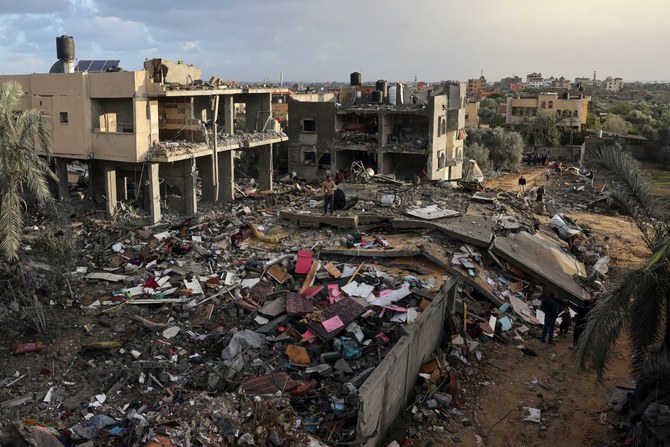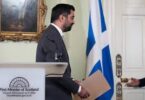Josep Borrell
On Oct. 7, the appalling Hamas terrorist attack reignited a cycle of violence that escalated into a humanitarian tragedy in Gaza. It is the outcome of a global political and moral failure, for which the Israeli and Palestinian people are paying a high price. This price will continue to increase if we fail to act.
I have come to Israel, Palestine, Jordan and the Gulf region to prevent precisely this from happening. I came to offer the EU’s assistance to alleviate the humanitarian crisis in Gaza, to contribute to efforts to avoid a spillover of the conflict in the region, and to launch work for a just and sustainable peace between Israelis and Palestinians. This war must be the last.
The barbaric attack of Hamas against Israeli civilians on Oct. 7 was totally unjustifiable. We condemned it in the strongest possible terms and recognized the right of Israel to defend itself. However, the way Israel uses this right is essential. There is no blank check. It matters a lot for the future of the region. International and humanitarian law must be respected. As US President Joe Biden did before, I asked my Israeli interlocutors “not to be blinded by rage.” The best friends of Israel are those who call for restraint. For instance, cutting off water, food, electricity and fuel to a civilian population is not acceptable. The scale of the bombing and the number of casualties are also extremely concerning.
We must urgently alleviate the dramatic humanitarian crisis in Gaza. It is essential to limit the suffering of the Palestinian population, while it is also essential to free Israeli hostages. However, humanitarian assistance can never be made conditional, all the more if innocent people suffer from it. We need to ensure that humanitarian supplies enter Gaza in quantities that meet the needs each day. Transit capacities need to be increased and more border crossings opened. Safe corridors must be established for the wounded and the sick. The International Committee of the Red Cross must get access to the hostages held by Hamas, who should be released immediately and without condition.
Once the humanitarian situation is consolidated, we have to move to politics. I discussed in Israel and Palestine a set of principles regarding the possible future of Gaza. We oppose the forced displacement of the people of Gaza to other countries. We say no to the reduction of the territory of the enclave, its reoccupation by Israel or Hamas continuing to use its territory as a safe haven. No also to the dissociation of Gaza from the overall Palestinian issue.
The Palestinian Authority must return to Gaza. However, it will probably need support for a transitory period. We would therefore encourage a stronger involvement of Arab states, trusted by both the Israelis and the PA. We must now also solve the Israeli-Palestinian conflict as a whole. I understand that Arab states, like the EU, must be certain that their involvement will not be an end in itself, but a step on a clear path toward a Palestinian state. Finally, we need a greater involvement of the EU. Not only to help rebuild Gaza, as we have already done many times, but to help build a full sovereign Palestinian state, capable of restoring the rights of the Palestinians. The EU must help achieve the security and freedom of both Israel and Palestine.
For decades, the international community has formally committed itself to the two-state solution, but without sufficient commitment to achieve it effectively. Meanwhile, in both camps, the forces of denial grew, under the hubris of some and the desperation of others. Over the last decades, the Palestinian territory has been divided into an archipelago of unconnected areas. The illegal settlements in the West Bank and violence against Palestinians have increased dramatically and have become even more brutal since the Hamas attack. With the Abraham Accords, many believed that the Israeli-Palestinian conflict could be circumvented. Oct. 7 dispelled that illusion.
This time, we must put an end to the vicious cycle of violence. Otherwise, it will be perpetuated from generation to generation, from funeral to funeral. I discussed with our regional partners how to implement the two-state solution, building on the cooperation the EU established with Saudi Arabia, Egypt, Jordan and the Arab League last year to work on a comprehensive regional peace. We must now intensify our work. It will be difficult, but working together remains the only viable way to bring peace. This is our common goal and our commitment. We owe it to the thousands of Israeli and Palestinian victims who have died since Oct. 7.







